Albumin
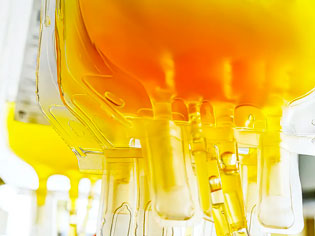
Description: is a protein produced by the liver that circulates in plasma.
Source: Commonly found in blood plasma. Bovine serum albumin is usually used
Use: Albumin is used to replace blood volume loss resulting from trauma such as a severe burns or an injury that causes blood loss
Alternative: Genetically-modified rice are also used to reduce animal cruelty
Albumen (Egg Whites)
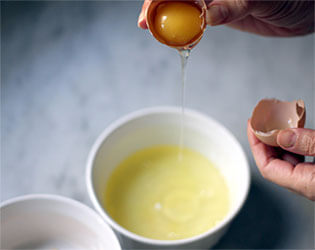
Description: In eggs, milk, muscles, blood, and many vegetable tissues and fluids. May cause allergic reaction. Derivative: Albumin.
Source: source
Use: In cosmetics, albumen is usually derived from egg whites and used as a coagulating agent. In cakes, cookies, candies, etc. Egg whites sometimes used in clearing” wines.
Gelatin

Description: A coagulant and food thickener derived from animal bones, skin and other parts containing collagen
Source: source
Use: Gelatin is used to thicken and solidify a wide range of foods, including gummy bears, fruit-flavored jello, and marshmallows
Allantoin

Description: Is a chemical compound. Allantoin is a major metabolic intermediate in most organisms including animals, plants and bacteria.
Source: It is produced from uric acid, which itself is a degradation product of nucleic acids. Is present in the urine of most mammals
Use: It is frequently present in toothpaste, mouthwash, and other oral hygiene products, in shampoos, lipsticks, anti-acne products, sun care products, and clarifying lotions, various cosmetic lotions and creams, and other cosmetic and pharmaceutical products.
Alternative: Is present in botanical extracts of the comfrey plant
Alpha-Hydroxy Acids
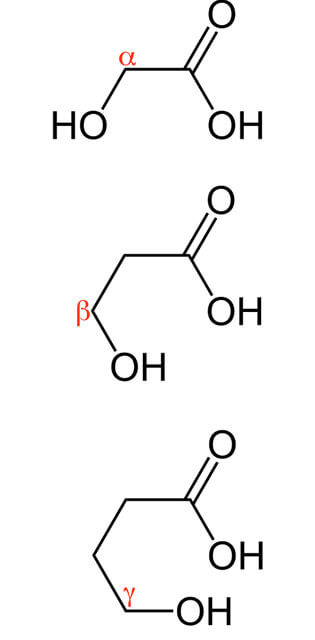
Description: are a class of chemical compounds that consist of a carboxylic acid substituted with a hydroxyl group on the adjacent carbon.
Source: Lactic acid may be animal-derived (see Lactic Acid).
Use: Any one of several acids used as an exfoliant and in anti-wrinkle products
Alternative: Glycolic acid, citric acid, and salicylic acid are plant- or fruit-derived.
Beeswax
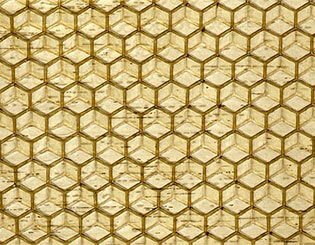
Description: Is a natural wax produced by honey bees
Source: The wax is formed into scales by eight wax-producing glands in the abdominal segments of bees
Use: Candle-making, food additive E901, Lubricate Wood, polish furniture, lip balm, water proofing agent
Bee Pollen

Description: Bee pollen is a ball or pellet of field-gathered flower pollen packed by honeybees and used as the primary food source for the hive.
Source: source
Use: health supplement, as food
Biotin
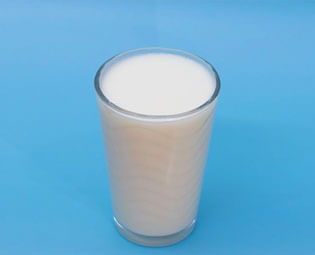
Description: Biotin is a form of vitamin B
Source: Found in larger amounts in milk
Use: Used as a texturizer in cosmetics, shampoos, and creams.
Alternative: Yeast
Carmine
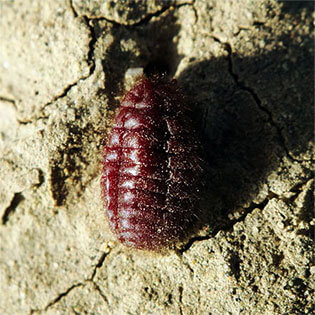
Description: Is a pigment of a bright-red color scale insects such as the cochineal, Armenian cochineal, and Polish cochineal.
Source: Carmine is made by crushing the female cochineal insect. The insects are harvested, sun-dried and crushed. They are then put into an acidic solution that produces carminic acid.
Use: coloring agent, food dye, food colorant
Elastin
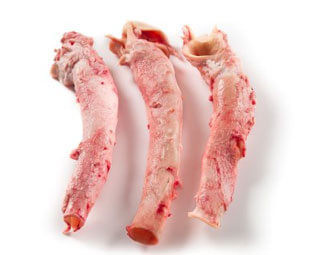
Description: An animal-derived ingredient that comes from connective tissues.
Source: Protein found in the neck ligaments and aortas of cows.
Use: Often combined with collagen in beauty products.
Alternative: Synthetic alternatives may be available, protein from plant tissues.
Fish scales / Guanine

Description: A fish scale is a small rigid plate that grows out of the skin of a fish.
Source: Fish skin
Use: Used in cosmetics since they can give a shimmering effect to makeup and lipstick. Crystalline guanine is used as an additive to various products (e.g., shampoos). It is also used in metallic paints and simulated pearls and plastics.
Glycerin / Glycerol
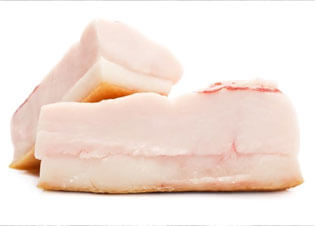
Description: It is a colorless, odorless, viscous liquid that is sweet-tasting and non-toxic. (labeled E422 in food)
Source: A byproduct of soap manufacture (normally uses animal fat)
Use: Used in FDA approved wound and burn treatments, as a sweetener in the food industry and as a humectant pharmaceutical formulations.
Alternative: Vegetable glycerin (a byproduct of vegetable oil soap), derivatives of seaweed, petroleum.
Keratin

Description: Protein extracted from various animal parts
Source: Ground-up horns, hooves, feathers, quills, and hair of various animals.
Use: In hair rinses, shampoos, permanent wave solutions.
Alternative: Almond oil, soy protein, amla oil (from the fruit of an Indian tree), human hair from salons. Rosemary and nettle give body and strand strength to hair.
Lanolin (Wool yolk)

Description: A product of the oil glands of sheep
Source: Sheep wool (See fur)
Use: Lanolin's role in nature is to protect wool and skin from climate and the environment. By humans is used as skin smoothing. It is frequently used in protective baby skin treatment and for sore nipples from breastfeeding. Lip balm, moustache wax, lubricant
Alternative: Plant and vegetable oils
Snails
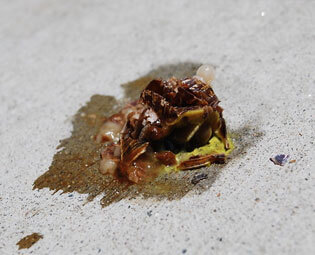
Description: Snails
Source: Crushed snails
Use: In some cosmetics
Squalene

Description: Is an organic compound. Generally any chemical compounds that contain carbon-hydrogen bonds
Source: Obtained from shark liver oil
Use: Use as an adjuvant in vaccines. Squalene is not itself an adjuvant, but it has been used in conjunction with surfactants in certain adjuvant formulations.
Alternative: Vegetable sources (primarily vegetable oils) include amaranth seed, rice bran, wheat germ, and olives.
Tallow
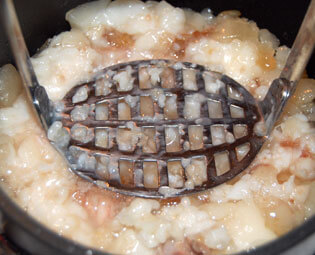
Description: Rendering is a process that converts waste animal tissue into stable, usable materials.
Source: Rendered form of beef or mutton fat, primarily made up of triglycerides.
Use: In wax paper, crayons, margarines, paints, rubber, lubricants, etc. In candles, soaps, lipsticks, shaving creams, other cosmetics
Wax

Description: Glossy, hard substance that is soft when hot.
Source: From animals and plants
Use: In lipsticks, depilatories, hair straighteners.
Alternative: Vegetable waxes
Collagen

Description: Is the main structural protein in the extracellular matrix. Connective tissues and it is the most abundant protein in mammals
Source: Tendonds or ligaments from bovine, equine, porcine, or even human sources.
Use: Widely used in cosmetic surgery, as a healing aid for burn patients for reconstruction of bone and a wide variety of dental, orthopedic, and surgical purposes
Alternative: Soy protein, almond oil, amla oil (see alternatives to Keratin), etc.
Cysteine

Description: An amino acid that can come from animals.
Source: Chicken, Cheese, Duck, Eggs, Pork, Turkey, etc.
Use: Used in hair-care products and creams, in some bakery products, and in wound-healing formulations.
Alternative: Legumes, Sunflower Seeds, Brussel sprouts, onions, garlic, bell peppers, broccoli, buckwheat and quinoa
Cystine
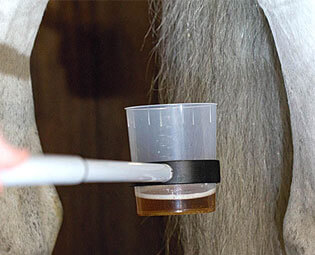
Description: An amino acid found in digestive enzymes in the cells of the immune system, in skeletal and connective tissues, skin, and hair.
Source: Found in urine and horsehair.
Use: Used as a nutritional supplement and in emollients.
Hyaluronic Acid

Description: Is an anionic, nonsulfated glycosaminoglycan distributed widely throughout connective, epithelial, and neural tissues.
Source: Extracted from the rooster comb, umbilical cords and the fluids around the joints.
Use: Used in cosmetics and some medical applications. For hydration and control inflammation
Alternative: Synthetic hyaluronic acid, plant oils.
Animal Derived Ingredients List
Animal Derived Ingredients Categories
Easy Vegan Swaps
Switching to a vegan diet can seem very daunting, it is actually much easier than you might think.
Help 5 Vegan grow
Your support fuels our growth, no contribution is too small.

